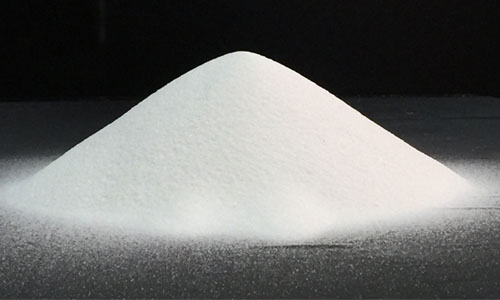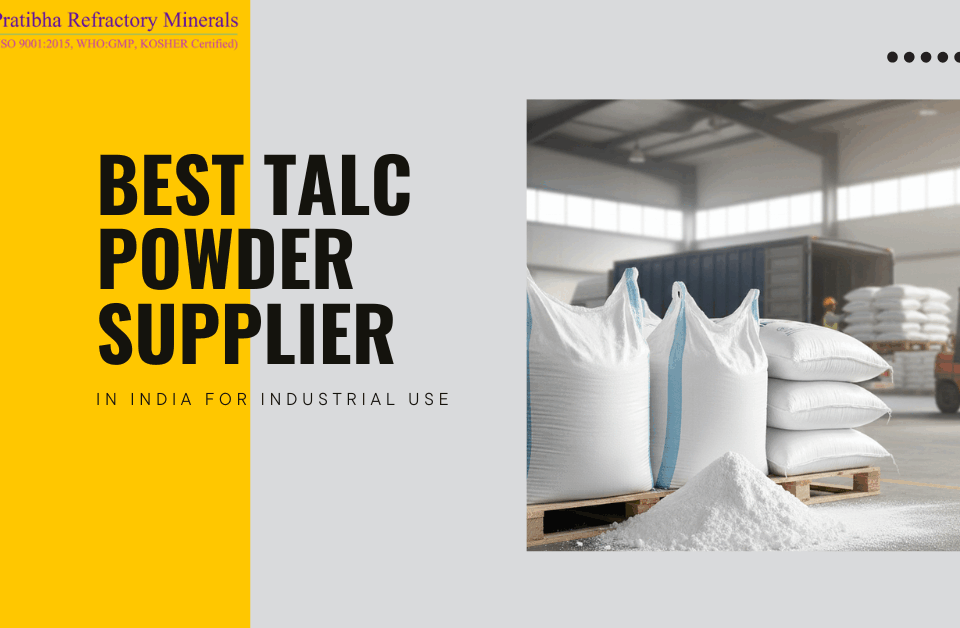- Call for Sales Enquiries

- +91-9413034047
- +91-294-2413244
- info@pratibharefractory.com
Does talc powder have any applications in the art world?

How do I prevent mica powder from clumping in my projects?
October 9, 2023
Is quartz grit the same as quartz sand?
October 23, 2023Does talc powder have any applications in the art world?

In art, creative minds have no boundaries, often the artists look for uncommon materials and mediums for realisation of their ideas. One such material that has proved to be a favorite in the creative arena is talc powder. Though it may not be the first thing that comes to mind when thinking about art supplies, talcum powder has proved itself as a versatile tool with unique properties that have found its use in the hands of numerous artists in different artistic disciplines.
At Pratibha Refractory Minerals, as a reliable Supplier of Talc Powder, appreciate the multi-functional nature of talcum powder, not only in traditional uses like cosmetics but also in the intriguing and inventive world of art. In the following, we shall explore the varied ways through which talc powder has made itself at home in the art world.
1. Talc Powder as a Fixative: Talc powder is primarily used in the art industry as a fixer for charcoal and pastel drawings. These mediums have been used to create exquisite works of art; however, artists encounter challenges in avoiding smudging. And, as a fixative, talc powder comes to the rescue. It is gently sprinkled on the artwork, thereby creating a protective layer that preserves the original drawing and prevents smearing by error. This technique ensures that the artist’s vision is preserved for years by being the simplest and the most effective.
2. Sculpting with Talc: However, the sculptural potential of talc goes beyond soapstone carving. Soapstone being a popular material to carve, it is sometimes used as an additive to modify texture and workability of sculpting materials like clay and plaster. This allows artists to work on particular textures and forms that might be difficult using the raw material alone. By putting talcum powder into use, sculptors can create fine details and smooth surfaces on their art, making it more dynamic and more intricate.
3. Talc in the World of Special Effects: Cinema is magical because it can take audiences to other worlds and the past. However, talc powder is used differently in the film industry to enhance some special effects. For example, when filmmakers need to make it to simulate snowfall, they use talc powder. It is alright, snowflakes resemble the whitish particles that gently fall from the sky. In addition, it can mimic dust and smoke in action sequences, making atmospheric effects for film and theatre productions.
4. Costume and Prop Design: Talc powder is useful in the area of costume and prop design. It is applied to make the appearance of the weathered and aged costumes and props. It can be strategically applied and mixed with other materials to achieve the vintage or distressed look, which costume designers seek. For instance, this property makes it perfect for use in keeping costumes and props dry during performances or shoots.
5. Art Conservation and Preservation: It’s important that the art world is involved in preservation of art, artifacts. Talc powder is used in the preservation of artwork, particularly protecting delicate surfaces and materials. It can be used to reduce moisture and prevent sticking of pages when conservators work with old books, manuscripts or fragile documents. Using gentle and non-intrusive techniques, the preservation of these historically-valuable pieces remains possible for future generations to study and enjoy.
Conclusion
Thus, the art world stands as a testimony to human inventiveness and creativity, with talc powder’s role in it symbolizing its adaptability. Talc’s worth has been proven beyond doubt from preserving historical documents to creating stunning special effects in film, making it an essential tool for artists and creative professionals. Pratibha Refractory Minerals are proud to produce an ultra pure high talc powder for artistic use worldwide to nurture an artist, conservators, and artisans creativity. Whether to make the picture more beautiful or to bring a touch of magic into the film, talcum powder has been an unwritten hero among other artists, assisting in the realization of the artists’ imagination.


